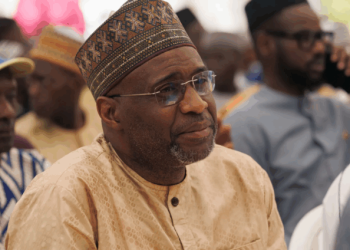After he was sentenced to life in prison in 1964, iconic South African president Nelson Mandela stood in a court dock only one more time for the rest of his life – when his wife Winnie Madikizela insisted on a very public divorce process.
According to reports at the time, the first black president of South Africa had insisted on a private and amicable dissolution of the 38-year marriage which became in part, an odd symbolic anti-apartheid union. But at 77 and already frail, Mandela swore to answer with the whole uncomfortable truth before his nation.
A showdown in court was somewhat an expected outcome when rambunctious Winnie was involved. Throughout the 1980s and early 1990s, South African media had painted her as “fierce”, a “survivor” and a “fighter” who did not back down easily against her enemies.
Apparently, the soon-to-be-former wife of Nelson Mandela would not back down even against a global hero. Mandela had asked for a divorce in 1995 and hoped his estranged wife would for the sake of old times not do what she eventually did.
In 1992, it was Mandela who had said “My love for her remains undiminished” right after separating from Winnie. Perhaps, he meant these words deeply because family friend Claude Colart recounted to Sky News in 2018, Mandela regretted how “his political activism pushed his family life to the brink of the impossible”.
It is fair to say the marriage began to fall apart when Mandela was committed to the prison on Robben Island in June of 1964. Apartheid put asunder what it may have also put together, if you can believe it.
Winnie and Nelson were married only three months after he had left his first wife, Evelyn Mase. Winnie was a social worker, a politically-conscious Black South African woman who seemed like she could live with what Nelson had signed on to do with his life.
Years on, Winnie described romance with Mandela: “I would be picked up after work. Nelson, a fitness fanatic, was there in the car in gym attire. I was taken to the gym, to watch him sweat! That became the pattern of my life. One moment, I was watching him. Then he would dash off to [political] meetings, with just time to drop me off at the hostel. Even at that stage, life with him was a life without him.”
The strain of toiling together against an unjust system showed early even before the couple’s wedding when Mandela had to beg the apartheid government to allow him a week off from a ban so he could participate in his own marriage ceremony. National politics came right away after their honeymoon.
The 16 century English dramatist asked in his famous romantic tragedy Romeo and Juliet: “What’s in a name? that which we call a rose By any other name would smell as sweet”. It so happens that Winnie was born Nomzamo, meaning “perseverance through trials”.
Where they could, the couple organized others to seek concessions from the South African government. It was clear they were matched together in philosophy because Winnie was not the one to turn away from the African National Congress‘ (ANC) more extreme methods of seeking justice and fairness.
The nature of the ANC’s tactics meant that Mandela had to go underground in 1962, four years after his marriage. His two daughters with Winnie, Zenani and Zindziswa, had been born, with the older girl not even five.
The infamous Rivonia Trial came in 1963 after Mandela and other anti-apartheid activists were arrested for inciting unrest. When he was sentenced, the glass that divided visitors and prisoners at Robben became a metaphorical wedge too in the marriage between Mandela and Winnie.
With Mandela in prison, Winnie quickly took on the baton to fight against apartheid on the outside. By her deeds, Winnie wrought her own silver sterling in South African political lore, the facts of which require another piece of writing.
But as Mandela would later explain, Winnie lived her life fully more than he could take. She was involved in an extramarital affair while he was in jail and probably after he had been released.
Mandela said in court;
“The bedroom is where a man and woman discuss the most intimate details. There were so many things I wanted to discuss with her, but she is the type of person who fears confrontation. I was the loneliest man during the period I stayed with her…If the entire universe persuaded me to reconcile with the defendant I would not … I am determined to get rid of the marriage.”
Winnie thought an open arbitration would heal the marriage but Mandela claimed there was nothing to work at. Even after the divorce was granted, she fought till her death for what she believed she was owed through her marriage with Mandela, sadly, all to nought.
source: Face 2 Face Africa



















































